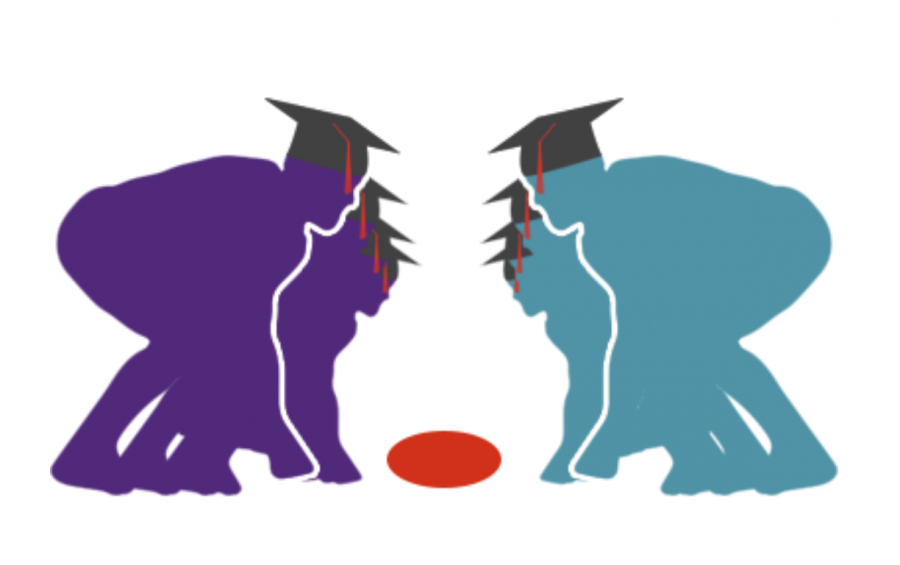Shahab Kousheshi: For Paying College Athletes “They are students first, athletes second.” This seems to be the mantra for those in the NCAA arguing against college athletes being paid. At first glance this is a simple yet sound argument. College athletes don’t get paid for the same reason high school athletes don’t get paid; in the eyes of the NCAA, they are students first, and should be treated as such. The reality of the situation is that being a college athlete is a full-time job — they spend the vast majority of their time in the weight room, on the court/field, and film sessions. In fact, the typical Division I college football player devotes 43.3 hours per week to their sport, which is 3.3 more hours than the typical American work week, according to Forbes. So much for being a student first. Although some of these students are given scholarships, many of them don’t get the full four years out of their scholarship due to getting cut from the team or getting injured. Even under scholarship, the “student”- athletes are getting a subpar education due to their excessive time commitment to their sport and are forced into non-time consuming majors, which will likely not be their future career. Under 2% of college athletes go professional in their sport, meaning the vast majority of student-athletes are going to need much more out of their academics than their sport. Above all else, the NCAA is a business, and a successful one at that — the NCAA makes over a billion dollars per year. The fact that the people who make this system work — the athletes — go unpaid outside of their scholarships is an injustice, in my opinion. For example, the average division one college basketball player is worth upwards of 200,00 dollars per year if they were able to play in a free market system similar to that of the NBA according to Business Insider. The average Division 1 college basketball program is making around 8 million dollars a year, so the question is, where does the money go if not to the players that are earning it? Let’s take the NCAA March Madness basketball tournament as an example. In 2017, the playoffs alone made the NCAA around 800 million dollars, but an estimate by SB Nation shows that approximately 50 million of that goes directly to the athletes that participated, by virtue of funding their scholarships. The majority of the money that is sent to the schools is sent directly to their athletic department. This money can be spent on any number of things, including handing out ridiculous deals to coaching staff, which dwarf what the players are making. At the end of the day it’s truly nonsensical to not pay athletes who make so much money for the organizations they represent. They are not asking for gargantuan contracts like professionals get, but just enough to get by. Over 80% of college athletes live below the poverty line, and for people who are living on that little, anything helps. Eli Aronson: Against Paying College Athletes Should college athletes receive a piece of the one billion dollar revenue from the National Collegiate Athletic Association (NCAA)? It is something that shouldn’t happen and won’t ever happen. The best part of every NCAA sport is when a small division one school makes a run and beats some bigger universities. Paying athletes will create an insurmountable divide between big schools and small schools, taking away the fun for the fans. There are a ton of reasons why paying athletes will create a toxic culture within NCAA sports. The most obvious being that a lot of athletes are getting some sort of their tuition, books, room and board paid for by their school. According to the NCAA website, division one and two schools provide more than $2.9 billion in athletic scholarships every year, amounting to more than 150,000 scholarships. This number doesn’t even account for medical and travel expenses, team meals, or top notch training facilities. Students are being rewarded for their success on the field or court by receiving an education for a much discounted price, hence the name “student-athlete”. Paying athletes would remove the emphasis from the “student”, and take value away from education. There is no reason to pay someone to go to school, especially when they are given the opportunity to play the sport they love. Paying collegiate athletes would require time to set up a complicated system. The two sports that produce the most are football and men’s basketball. How would the NCAA pay these “student-athletes”? Would only the football and men’s basketball players receive compensation? What about field hockey or cross country? Would a star player get paid more than the bench player who goes to every practice? The logistics of paying athletes would be difficult to figure out. If the system isn’t broke, don’t break it. Paying college athletes would only create more problems. Everyone here at Latin understands the privilege of a strong education. After receiving a free (or discounted) education, if the athlete is talented enough to earn money for playing their sport, then they will make it on the professional level. Athletes cannot play their sport forever, but they can always utilize the knowledge gained from their education. What do YOU think? Comment your opinion below!]]>
Categories:
Room For Debate: Should College Athletes Be Paid?
November 5, 2018
1
0
More to Discover























































rigbokwe • Nov 6, 2018 at 4:17 pm
Wonderful article! You two made some very good points and I’m genuinely undecided. Thank you so much for writing about a topic that a lot of people never think about.